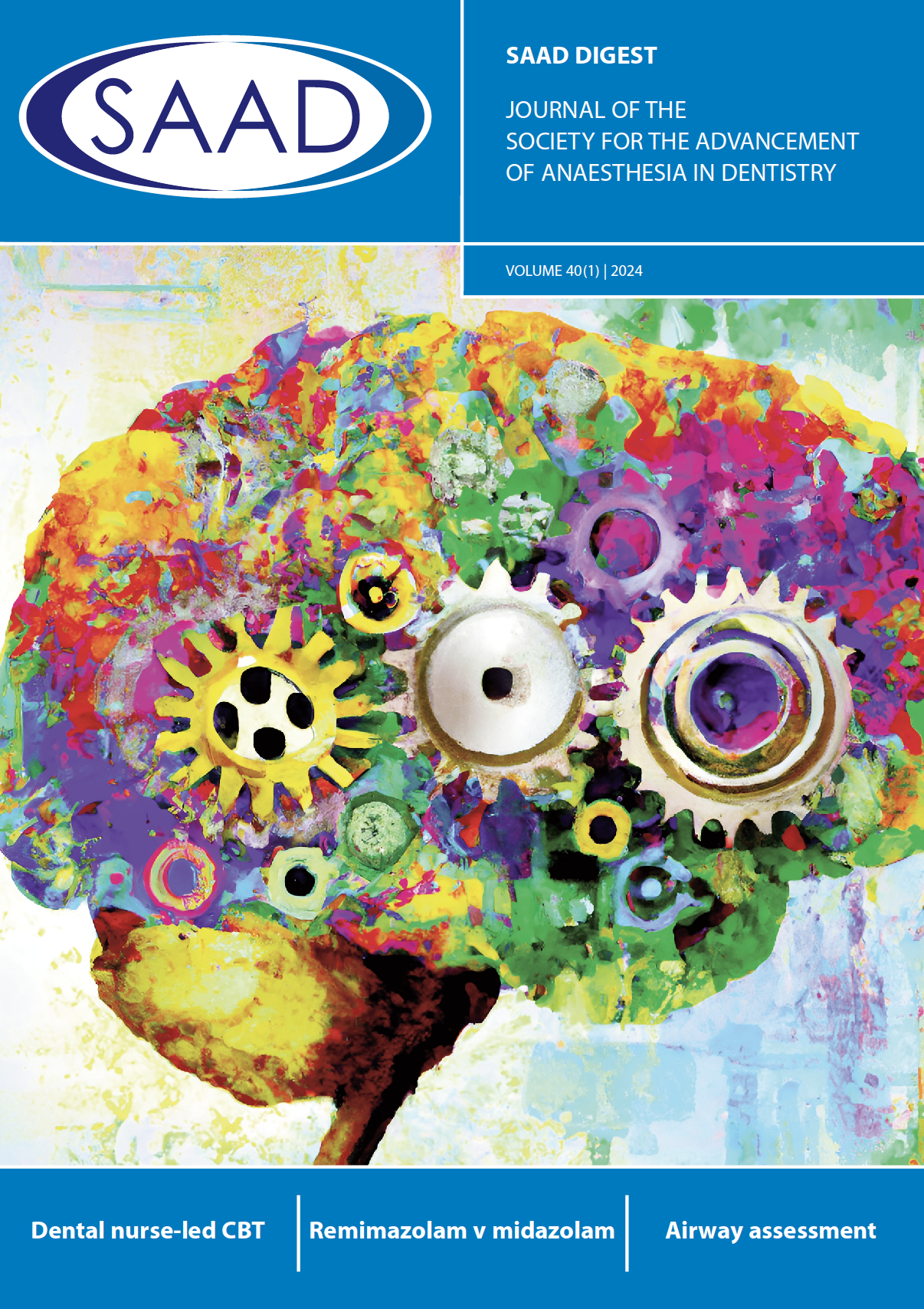
SAAD Digest
March 2024
Volume: 40
Issue: 1
Title: The effectiveness of dental nurse led Cognitive Behavioural Therapy (CBT) on the dentally anxious patient: a service evaluation
Author(s): K. Kauser, S. Naidu, R. Jaffery
Abstract:
Introduction
Dental Cognitive Behaviour Therapy (dental CBT) is a talking therapy for adults and children aimed to reduce a patient’s anxiety specifically related to dentistry. The Modified Dental Anxiety Score (MDAS) allows an objective measurement of the patient’s level of anxiety pre and post CBT.
Aims
The objective was to assess the effectiveness of the CBT service within Birmingham Community Healthcare NHS Foundation Trust (BCHC) Community Dental Services (CDS). The aims were to assess the number of patients with a pre- and post-CBT MDAS recorded, the success of CBT and the anxiety management modalities used to facilitate treatment.
Methods
A retrospective analysis of internal CBT referrals between January 2018 to December 2022.
Results
135 referrals were identified. 56% had a pre-MDAS score, of these 85% were between 20 to 25, indicating high anxiety (>19). Post-CBT MDAS scores reduced to between 5 to 14 for 85% of patients (indicating low / moderate anxiety). After having CBT 45% of patients had dental treatment with local anaesthetic (LA) alone and 35% with inhalation sedation (IHS).
Conclusions
CBT is effective in the treatment of dental anxiety and therefore allows patients to receive treatment from their general dental practitioners (GDP) and step down from general anaesthetic (GA) / intravenous sedation (IVS).
If you have a query relating to this article please email: digest@saad.org.uk
Articles from Digest 40(1)